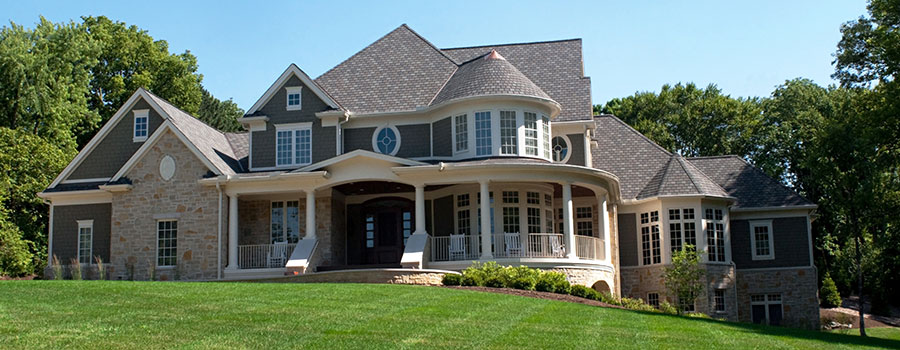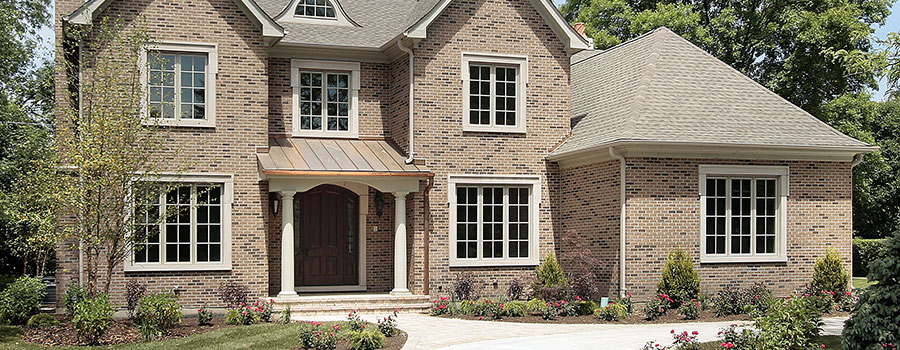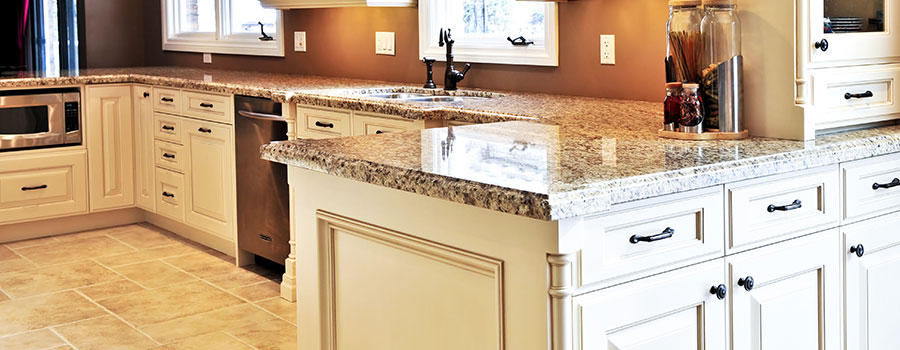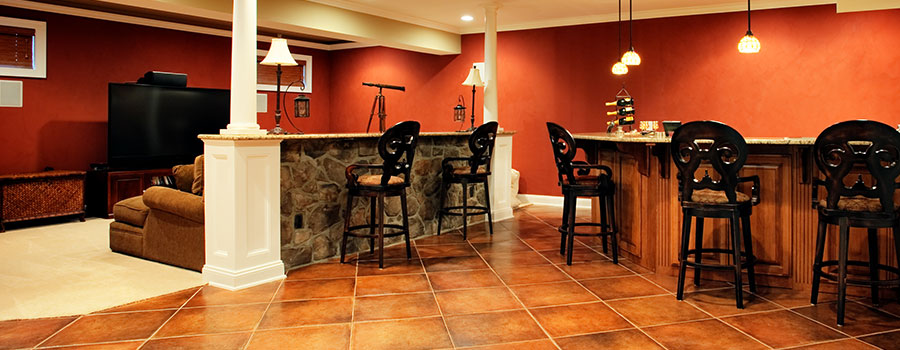5 Smart Remodeling Tips for a Sleek, Modern Home
Maintaining your home is crucial for keeping it a cozy and welcoming place for you and your family and for maintaining its worth. Due to concerns about high costs, lengthy deadlines, and the difficulty of overseeing large projects, many homeowners avoid remodeling projects. But did you know you can take significant remodeling projects without breaking the bank if you plan and use your imagination? Updating your house can be easy and reasonably priced with the correct cost-effective renovation tips. There are many reasonably priced ways to create modern design, whether you’re trying to remodel your kitchen, add some new touches to your bathroom, or refresh your living room. The various projects that you can handle, as given by condo remodel professionals, include: Upgrade the bathroom fixtures. Updating your bathroom is a cost-effective way to enhance your home. Simple modifications, such as replacing the faucet, showerhead, or cabinet handles, can give your bathroom a fresh, updated appearance. Adding new accessories, such as a fashionable shower curtain, matching towels, and sleek light fixtures, can help improve the room’s overall appearance. Expert bathroom remodeling services can be helpful if you’re planning a larger overhaul. Work with a company that offers high-quality and inexpensive bathroom renovation services, assisting customers in transforming their rooms with attractive and valuable upgrades. The right professionals will walk you through various inexpensive and elegant options, ensuring the project is done correctly and within your budget. Brighten it up Modern style uses color sparingly, yet the color chosen to highlight a room is often bright, giving it a fresh vibe that stands out against its surroundings. Because the background furniture and walls are neutral, you can change styles with just a few accessory switches, making modern-style economical. You simply need to work with experienced professionals, and they will hold your hand and help you achieve your dream. Update the lighting Lighting has a significant impact on the appearance and atmosphere of a room. Replacing obsolete light fixtures with new, modern ones can make a significant difference. Look for elegant designs, such as pendant lights or bare chandeliers, that can bring a sense of beauty to your room while remaining reasonably priced. You might also install LED strips under cabinets or along walls to produce a warm and inviting glow. These are frequently simple to install and are an excellent way to add modern lighting to your home without hiring an electrician. Updated lighting enhances the appearance of your rooms and makes them seem more pleasant and practical. As you update your lighting, you should note that yellowed, cracked, or otherwise dated light switches and outlet covers are some of the most apparent signs of an older property, regardless of how many modifications have been completed. Thankfully, this simple, affordable modification significantly impacts an older home. Get new switches, and you will give your house a look you can be proud of. Renovate the kitchen cabinets. Kitchen cabinets can make or break the appearance of your kitchen, but replacing them may be expensive. Consider refinishing your existing cabinets rather than buying new ones. A fresh coat of paint in a modern […]
Read moreTips to Planning a Home Addition
Does your house seem to be getting smaller? Perhaps your family has spent too much time packed together in the last year, there is a new baby on the way, or you simply require more space for your home office or hobbies. If relocation isn’t an option, now is the time to expand your living space. How would you go about it? How do you plan for a successful house addition? Here are tips given by home addition companies on how to go about it: Have clear goals The first step in designing a home addition is determining what you want to achieve. You can get ideas for your house’s expansion from the internet or a magazine. However, you cannot afford to proceed without first considering how it would play out in reality. Determine the objective of the home addition. Are you expanding your home’s square footage to improve its worth, or are you attempting to create a private refuge for yourself? It is important to determine the size of your house addition, as well as the plan and materials to be used in the design and construction of the house. Understand the addition as much as possible. You must ask the proper questions to receive the correct answers for your home expansion project. This calls for you to research the addition as much as you can. Some of the questions you should ask include: How much will it cost? You should research to obtain a general estimate of the cost of home extensions in your area and then consider the specifics of your property and the expansion. It’s from this that you should create a budget for your project. Will it be worth it? A reasonable estimate of the project’s cost will be useful here, allowing you to weigh the prospective advantages against the costs. If you want to increase the value of your home, a costly extension project may not be worth it. Discuss your home improvement plans with a local realtor to determine how they will affect the total worth of your home. However, if your goal is to raise your and your family’s level of life, you may be able to justify the project costs. Many people are ready to bear the expenditure if they want to stay in their homes for the long term. How much will the addition change the layout of your home? It is vital to evaluate how the home addition will affect your home’s current layout and flow. For example, adding a new level to your home will require the construction of a stairwell for access, and you will need to locate a suitable location for the stairway. What amount of space do you have for a home addition? Determine how much space your current home layout allows for additions. You should also contact your zoning agency to find out more about setbacks in your location. Is a house extension truly the only option? Instead of constructing an entirely new structure, you might be better off recycling rooms and relocating walls to make the most of your current home layout. Take […]
Read moreRenovation Reality Check: Smart Solutions for Common Remodeling Pitfalls
Taking on a home addition project can be thrilling, exciting, and intimidating all at the same time. If done correctly, it has the potential to revolutionize your home and the way you live in it while also increasing the property’s value. But if something goes wrong, it will feel like an endless nightmare. To assist you in avoiding the traps, and especially since prevention is better than cure on a pricey home building project, here are tips given by home addition contractors on what you should look out for and how to avoid making the mistakes: Underestimating the costs involved It’s easy to get swept up in the excitement of new design ideas without fully considering the financial implications, and many people begin with a budget based on initial estimates or the cost of materials, only to discover that labor, permits, and unforeseen issues quickly add up. There are a number of ways you can avoid making these mistakes. These ways include: Create a detailed budget: Work with your contractor to develop a comprehensive budget that accounts for all parts of the project, from materials and labor to permits and contingency money. It’s also wise to expect the unexpected. Allow at least 10-15% of your budget for unforeseen expenses. Hidden water damage or structural issues may occur, and having a buffer might help you alleviate financial stress. Get Multiple Quotes: Do not settle for the first quotation you receive. Getting quotations from different contractors will help you understand the average cost and prevent overpaying. You will also know how much you should expect to pay by the time the project is over. Being in a hurry when planning Proper planning is essential for the success of any renovation project. Skipping or hurrying through this step might result in confusion, delays, and costly adjustments down the road. Skipping critical processes, such as obtaining necessary permits or confirming design decisions before construction begins, might derail your project. To be on the safe side, think thoroughly about your project. Before you begin work on your project, take the time to think out every detail. This includes completing the design, obtaining permits, and ordering materials. A well-thought-out plan will help to avoid delays and ensure a smoother construction process. You also need to communicate clearly about your project. Maintain open lines of communication with your contractor and all other professionals involved. Regular check-ins can help identify possible issues early and keep everyone on the same page. Finally, be realistic about the timelines. Recognize that renovation projects sometimes take longer than anticipated, especially if unanticipated complications develop. Allow for some flexibility in your timeline to account for any delays. Ignoring your long-term needs Focusing too much on current trends or immediate demands without taking the long view can lead to regret later on. Homeowners may favor aesthetics over practicality or fail to anticipate future needs, resulting in a home that does not age gracefully. To avoid this issue, plan. Consider how your needs may alter in the future. For example, if you intend to live in your house for many years, consider aging-in-place amenities or […]
Read moreThings to Consider When Having a Home Addition Project
If your family has grown and you can’t live without the additional space, you shouldn’t just hire home addition companies and start a project. Instead, you should take your time and consider a number of things before you start the project. Some of the things you should do include: Check what you can do and what you can’t When expanding your home, you have two options: up and out. Before you start construction, you need to know how near you can legally reach the property line and where underground utility lines run. Thankfully, you can obtain this information from your local zoning department. Also, request a copy of your survey. If you live in a gated community, get to know the additions you can make and those that you can’t. Remember that the last thing you want to do is to start a project and later find out that you can’t do it in your area. Having this information makes the next steps much easier. Have solid reasons for the project Let’s face it. The reason why you feel you need more room is because something isn’t working properly in your home. You’ve tried all the inventive small living room ideas and mastered closet organization, but something is still lacking. Now, it’s time to figure out exactly what that is. Many homeowners believe it is a lack of room, but it could be a lack of storage. Before investing thousands of dollars in a house addition, determine if it will fix the problem. What could the problems be? Sometimes, you have poor organizational skills. In other cases, you have stayed in the house for too long that you need to make changes. Before you start your project, take time to understand why you need the project. Can you live with the current room you have? If you can, go ahead and make the relevant changes. You should note that if you are confused but you feel that you can make changes to the room you have, you can always consult a professional. Know your must-haves in the project. Everyone has a wishlist. At the same time, there are some things you simply cannot live without. If your mother is coming to live with you, she may require a private bath or basement apartment. To have an easy time coming up with the design for the project, establish a list of your “must-haves” and “would-be-nice-to-haves.” For example, you desire hard floors as a must-have. While natural hardwood is preferable, laminate flooring can suffice. To ensure that you are on the same page with your partner, always consult them when coming up with the things you must have in your project. Put together your team. Homeowners frequently inquire if they should start with an architect or a contractor. They believe hiring an architect is sensible because you must begin with a design. However, some builders have designers and architects on staff. The correct response is that you want a team. Whether they are different firms that work together or professionals that work for the same company, you require both. Remember that the […]
Read more3 Things To Avoid When Renovating
Are you thinking about renovating your kitchen, bathroom, or entire house? Here are mistakes to avoid making: Being in a hurry Most people will have the urge to renovate their homes when they have a big event coming. This can be a birthday party, family gathering, and so on. As you can tell, they are usually on a time crunch to get things done before the big day. While this is good as they have a time when they should have the project done, it often leads to them being in a hurry, increasing their chances of making plenty of mistakes that end up being too expensive. For example, if the event means some people will sleep over, you might have to have an extra bedroom. This means that you have to hire home addition companies to do this. As you can tell, this isn’t a small project, as you have to knock some walls down or even put others up. You don’t do an excellent job in a hurry on such a project. To have a great experience, you shouldn’t be in a hurry when renovating a house. When you are remodeling due to a coming event, don’t start a week before the event, as chances are that you will be in a hurry and you will mess up. Instead, start a few months before the event. Experts recommend that you start at least three months before the event. This way, you have enough time to find the right contractors and fix issues that might arise, among many other things. Hire the cheapest contractor Many people renovating their houses want to do it at the lowest cost possible. So, they will go with the cheapest options available. This ranges from the contractor they hire to the materials they use. While having a budget is good, you shouldn’t be too cheap as it often backfires. For example, in most cases, the cheap contractor you hire is most likely inexperienced, and they will most likely botch your project. When it comes to cheap building materials, they might be poor quality, and they not only look ugly but also don’t last as long. To stay safe, get quality materials that will give you a great experience. The materials will be a little expensive, but they will be worth it. The same applies to contractors. Don’t hire the cheapest. Take time to find quality ones that know what they are doing. Like the materials, they will be a little expensive, but you have peace of mind that you won’t need to go back to repeat the work they have already done. Don’t work without a plan. It’s tempting to start the renovations as soon as you get the money, but this isn’t a wise move as you tend to make mistakes that can be difficult to reverse. The right thing to do is plan how you will renovate. Before you begin the project, sit down with an experienced professional and ask them to help you develop a plan for the project. Through the planning, you will know when the project will begin, how […]
Read moreIs It Safe To Live In A House During Renovation?
Is it safe to live in a house during renovation? If you ask this question, you must have a renovation project, but you don’t want to leave the house. Well, it isn’t safe to live in the house during the renovation, but this doesn’t mean that you can’t live in the house. You only need to put several tips in place. To help you out, here are tips to increase the safety aspect as given by home remodeling architects: Have a designated storage area When doing the renovation, you obviously will have renovation materials over. These materials can easily hurt you and your kids. To ensure this doesn’t happen, have a specific area where you store everything. If you are lucky to have a large house, you can have the materials in a specific room and cordon off your kids from going there. Be out of the house when the renovation work is going on Most of the risk is when the renovation work is going on. A hammer can slip and hit you, something might drop from the roof and land on you, among many other things. To protect yourself and your loved ones, make an effort to be out of the house when the project is going on. If you work from home, ensure that you are far from where the contractors are working from. Communicate with the contractors A house can be risky even after the end of the day when no work is going on. This is because the contractors might have accidentally left a tool in a precarious position, and it falls on you. Some of the construction materials might also be in risky areas, and they hurt you. To ensure that the renovation area is safe, maintain a clear line of communication with the contractors and regularly ask them whether you can go in the room you are renovating. Set designated areas To avoid accidents, have designated areas for the various tasks. For example, if you are remodeling the kitchen, stay out of the kitchen and set up a temporary kitchen. If you have a garage or covered patio, work with your contractor and set up the temporary kitchen here. The same thing applies to the bathroom, bedroom, or any other room you are making over. Limit the visitors coming over The last thing you would want for yourself is one of your guests getting hurt in your home. Even if you love hosting, you should minimize the number of people coming to your home. Of course, you will have some of your friends who don’t understand it, but you should explain it. Instead of coming to your home, you can start having your events in the homes of other friends that aren’t renovating their homes. You can also begin having your meetups in hotels or nearby parks. Plan a vacation If you have a small project that will be over in a few days, take a vacation, so you are out of the house and safe. Do you have friends or places you have always wanted to visit but have had no time? […]
Read more




